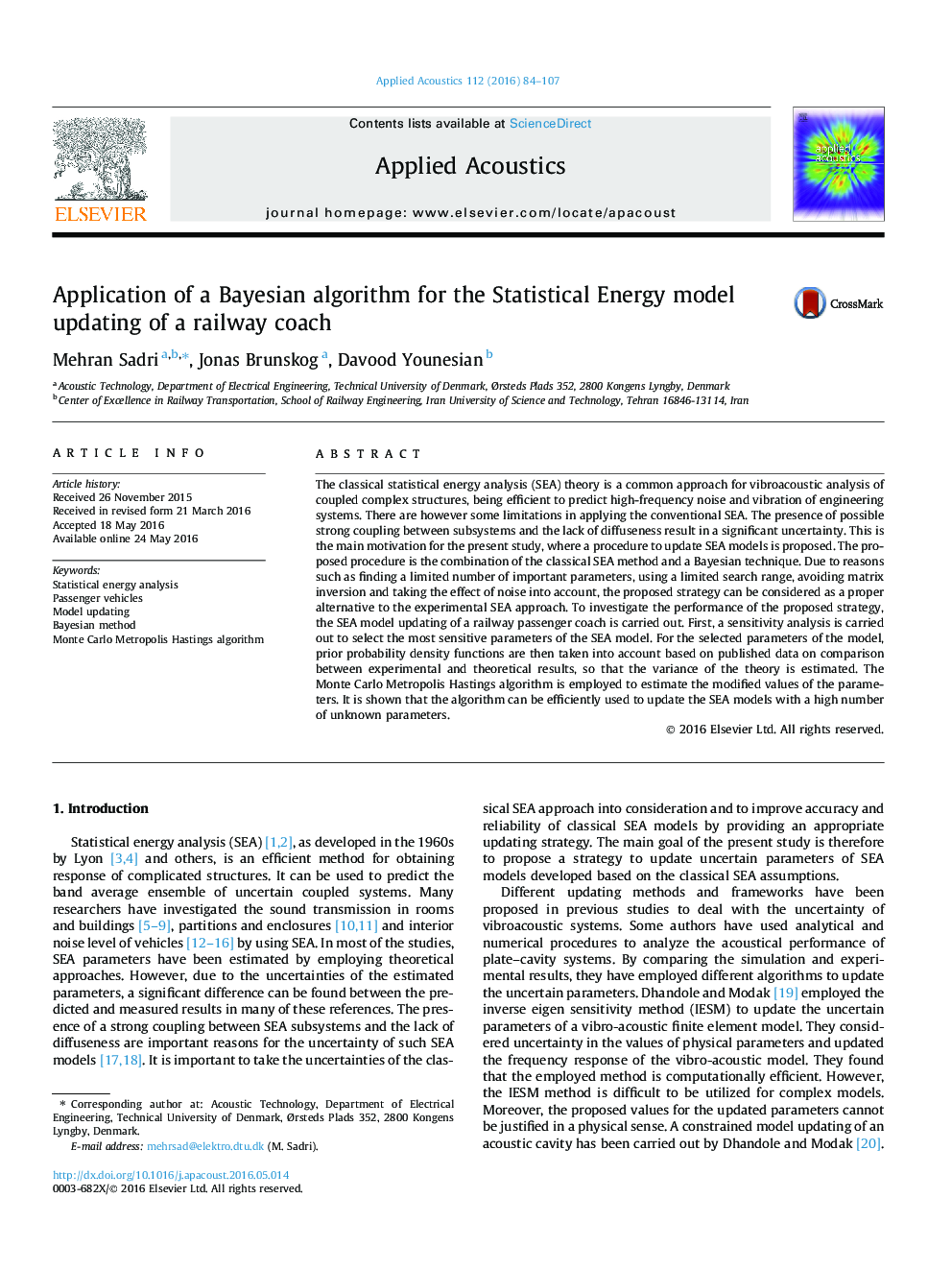| Article ID | Journal | Published Year | Pages | File Type |
|---|---|---|---|---|
| 760737 | Applied Acoustics | 2016 | 24 Pages |
The classical statistical energy analysis (SEA) theory is a common approach for vibroacoustic analysis of coupled complex structures, being efficient to predict high-frequency noise and vibration of engineering systems. There are however some limitations in applying the conventional SEA. The presence of possible strong coupling between subsystems and the lack of diffuseness result in a significant uncertainty. This is the main motivation for the present study, where a procedure to update SEA models is proposed. The proposed procedure is the combination of the classical SEA method and a Bayesian technique. Due to reasons such as finding a limited number of important parameters, using a limited search range, avoiding matrix inversion and taking the effect of noise into account, the proposed strategy can be considered as a proper alternative to the experimental SEA approach. To investigate the performance of the proposed strategy, the SEA model updating of a railway passenger coach is carried out. First, a sensitivity analysis is carried out to select the most sensitive parameters of the SEA model. For the selected parameters of the model, prior probability density functions are then taken into account based on published data on comparison between experimental and theoretical results, so that the variance of the theory is estimated. The Monte Carlo Metropolis Hastings algorithm is employed to estimate the modified values of the parameters. It is shown that the algorithm can be efficiently used to update the SEA models with a high number of unknown parameters.
